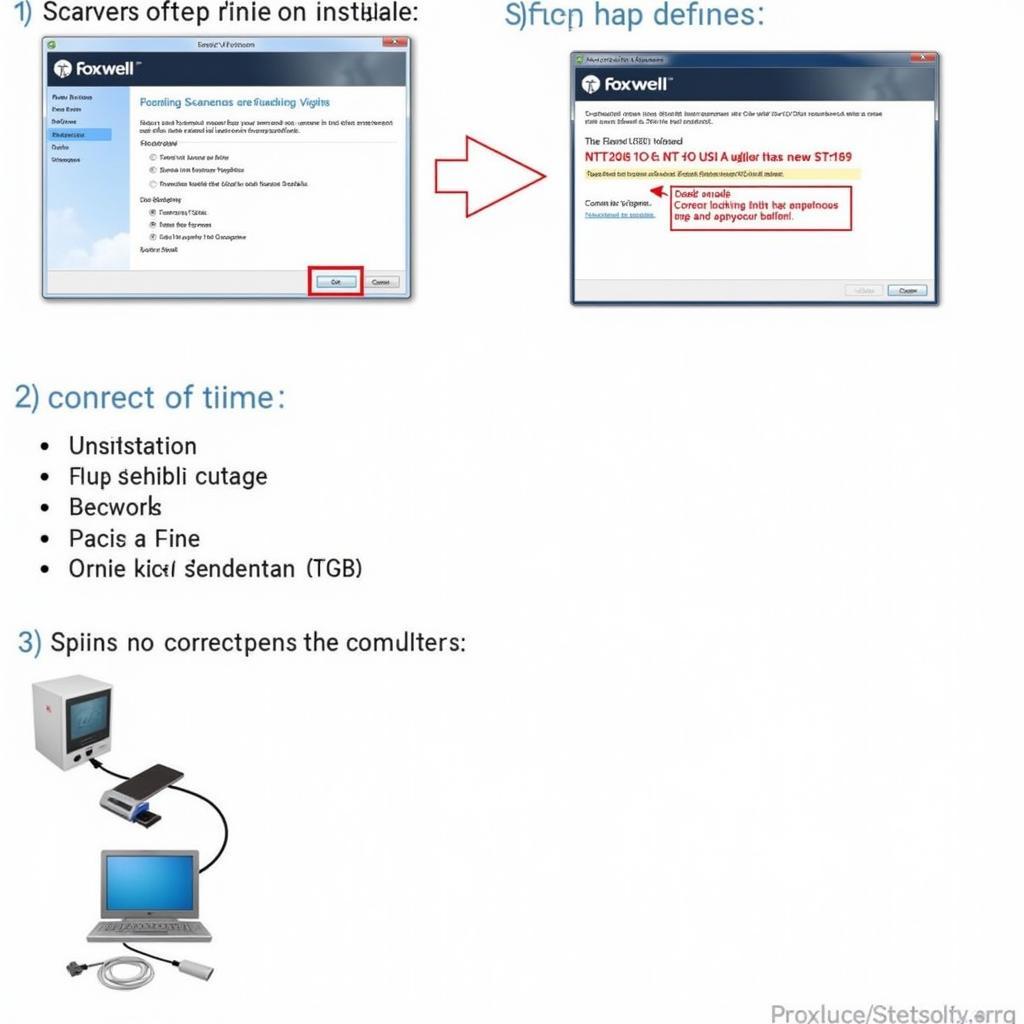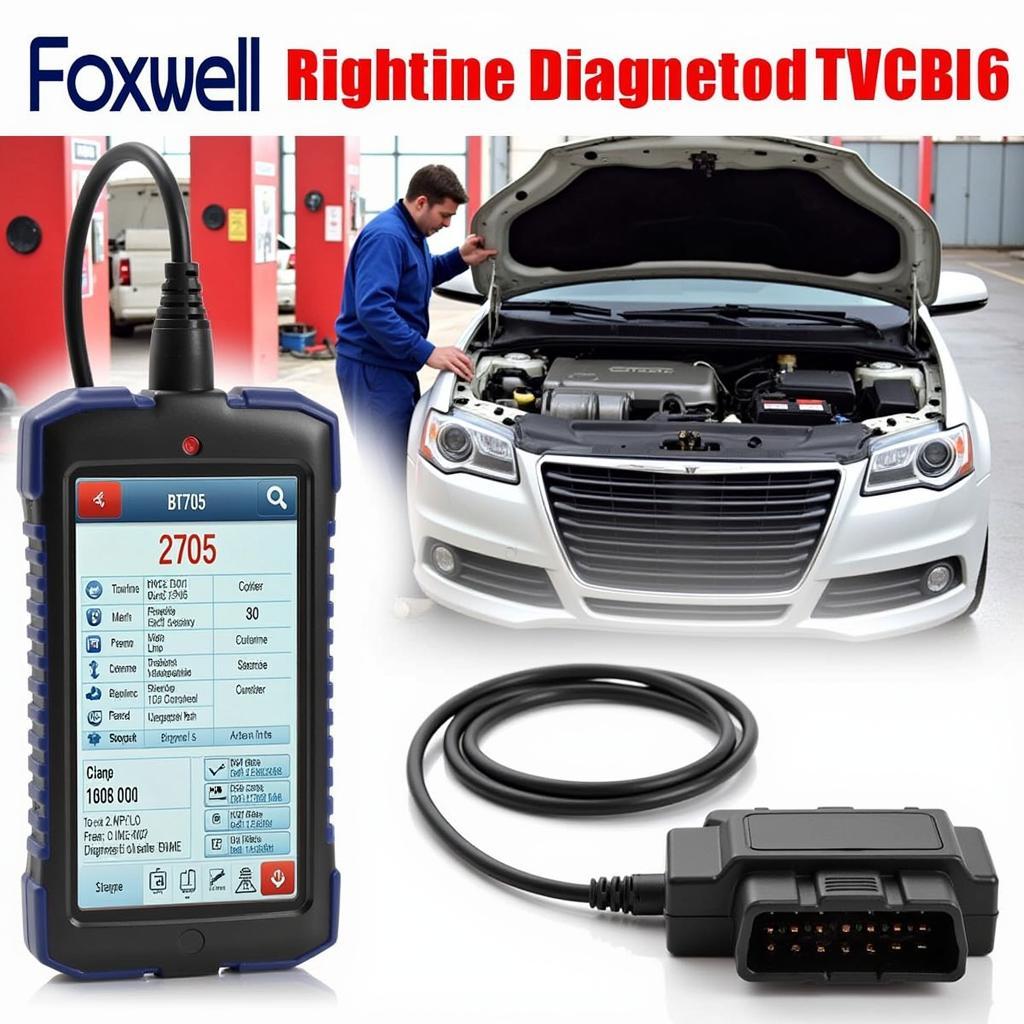Joseph W Foxwell Jr isn’t just a name; it’s increasingly synonymous with high-quality automotive diagnostic tools. As vehicles become more complex, incorporating intricate software and electronic systems, the need for reliable and sophisticated diagnostic equipment becomes paramount. Whether you’re a seasoned mechanic, a DIY enthusiast, or a shop owner looking to invest in the best tools, understanding the landscape of automotive diagnostics, particularly in relation to advancements attributed to individuals like Joseph W Foxwell Jr, is crucial for effective troubleshooting and repair.
Understanding the Evolution of Automotive Diagnostics
The days of relying solely on mechanical know-how are fading. Modern vehicles are essentially computers on wheels, requiring specialized tools to interpret the data they generate. This is where diagnostic tools come into play, providing a window into the vehicle’s electronic control units (ECUs). These tools allow technicians to identify issues, read fault codes, monitor live data, and perform advanced functions like programming and coding.
The contributions of individuals like Joseph W Foxwell Jr have significantly impacted the development and accessibility of advanced automotive diagnostic equipment. Their work has paved the way for user-friendly, yet powerful, tools that empower both professionals and car owners to understand and address vehicle issues effectively.
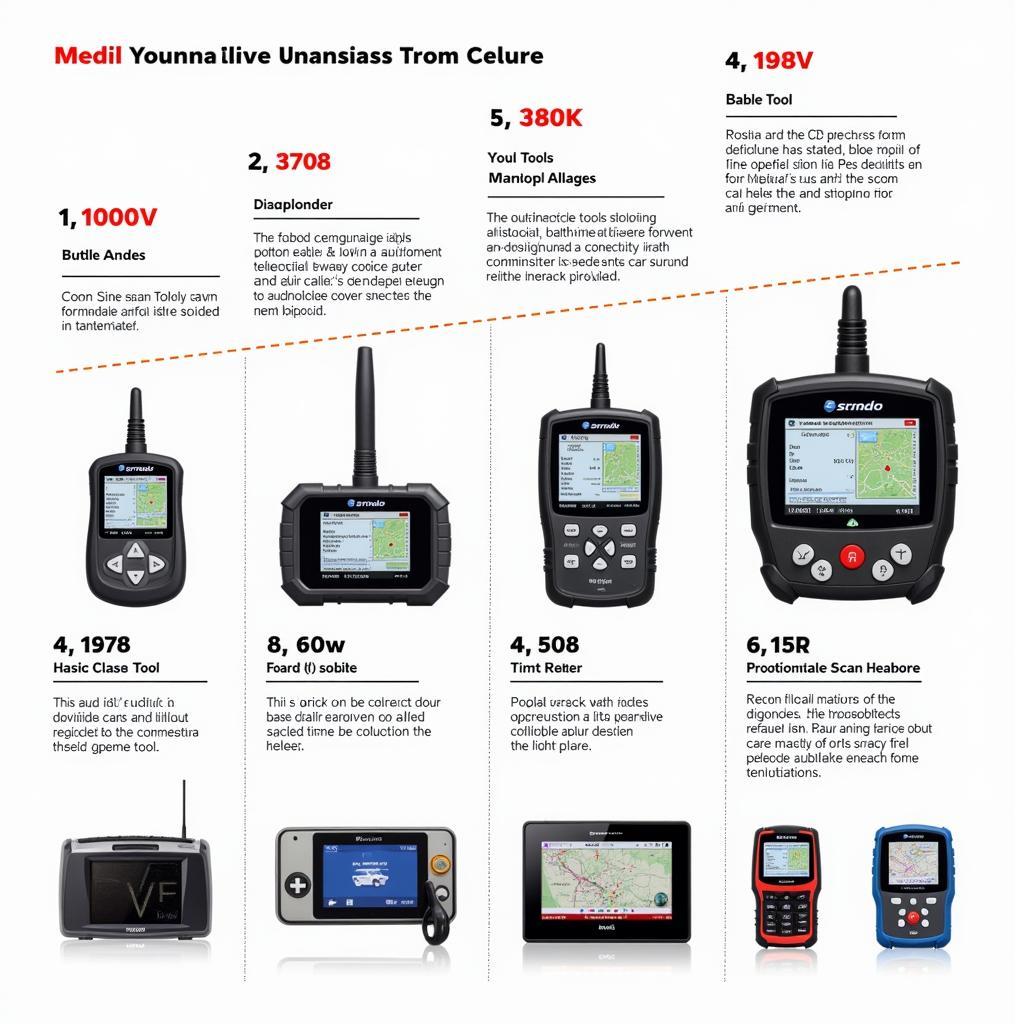 Evolution of Advanced Diagnostic Tools in the Automotive Industry
Evolution of Advanced Diagnostic Tools in the Automotive Industry
Choosing the Right Diagnostic Tool: Features to Consider
Selecting the right diagnostic tool can be daunting, given the plethora of options available. Key features to consider include vehicle coverage, diagnostic capabilities, user interface, update frequency, and of course, cost. Think about your specific needs. Do you work on a variety of makes and models, or do you specialize in a particular brand? Do you require advanced functionalities like bi-directional control and coding, or are you primarily interested in reading and clearing fault codes?
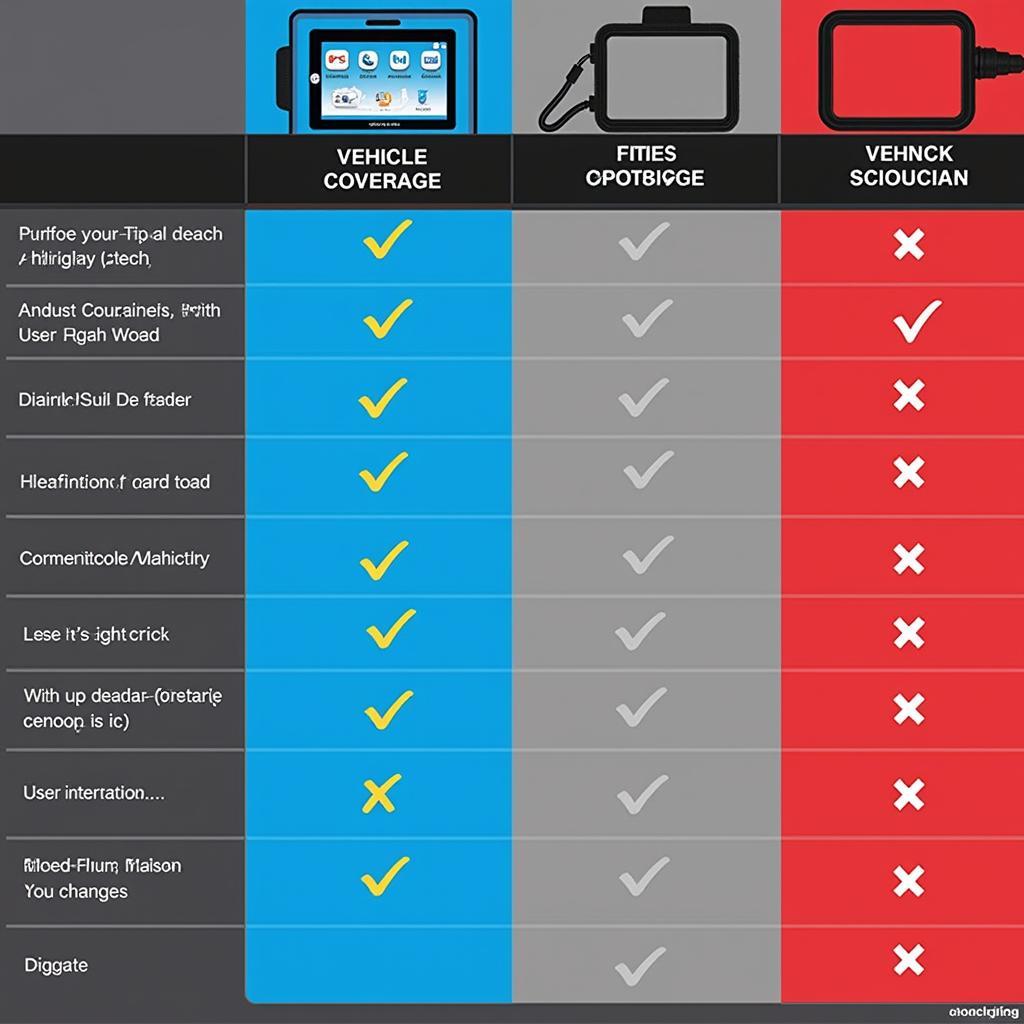 Comparing Key Features of Automotive Diagnostic Tools
Comparing Key Features of Automotive Diagnostic Tools
Mastering Automotive Software and Diagnostics: Tips and Tricks
Even with the best diagnostic tools, effectively interpreting the data they provide requires a certain level of expertise. Familiarize yourself with common fault codes and their meanings. Learn how to navigate the tool’s interface efficiently. Practice analyzing live data streams to pinpoint issues. Online forums and training resources can be invaluable for expanding your knowledge and staying up-to-date with the latest advancements in automotive diagnostics.
Utilizing Joseph W Foxwell Jr’s Contributions to Enhance Your Skills
Joseph W Foxwell Jr’s contributions to the field have undoubtedly shaped the way technicians approach diagnostics. Understanding the underlying principles and technologies behind these advancements can significantly enhance your diagnostic skills.
Addressing Common Automotive Problems with Diagnostic Tools
From engine misfires to transmission issues, diagnostic tools can help identify the root cause of a wide range of automotive problems. Let’s take a simple example: a check engine light. While this light can indicate a myriad of problems, a diagnostic tool can pinpoint the specific fault code, allowing you to focus your troubleshooting efforts and avoid unnecessary repairs.
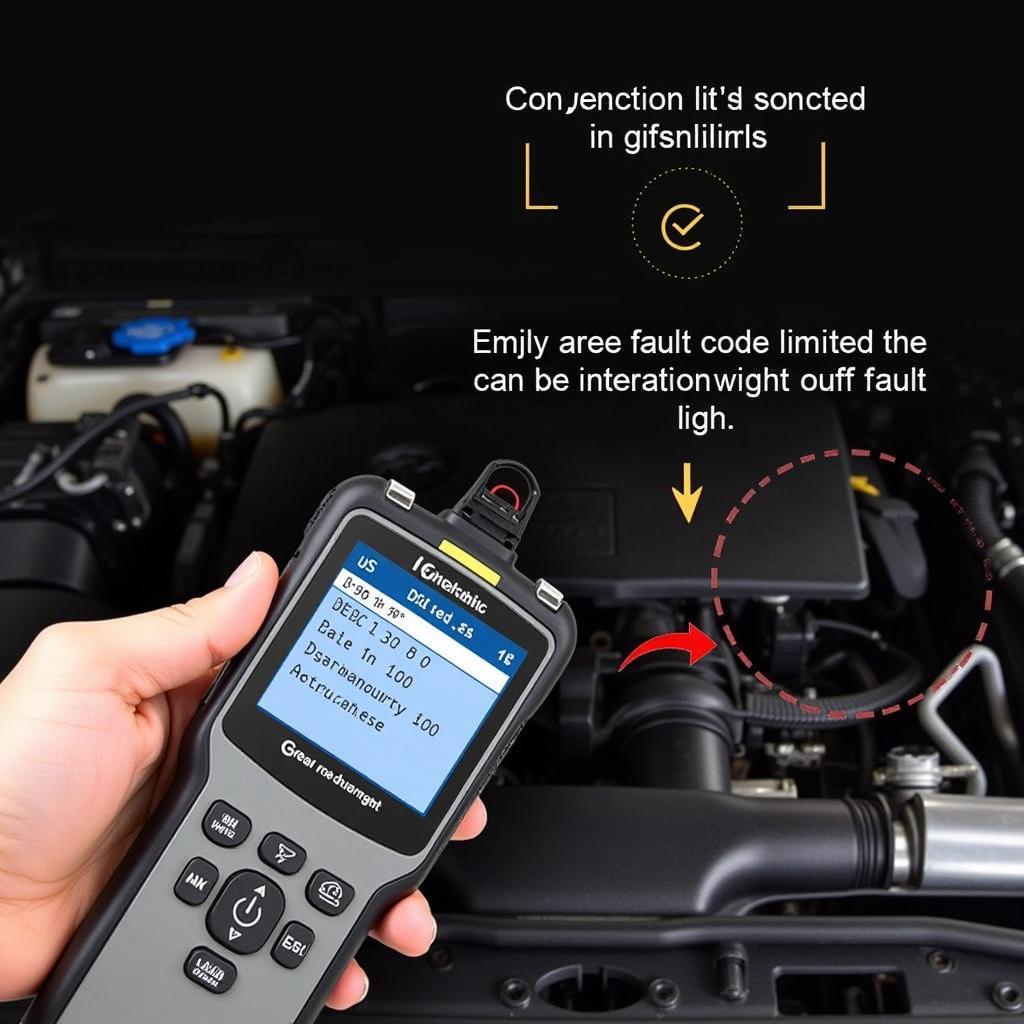 Using Diagnostic Tools to Troubleshoot a Check Engine Light
Using Diagnostic Tools to Troubleshoot a Check Engine Light
What does Joseph W Foxwell Jr have to do with check engine lights?
Joseph W Foxwell Jr’s work has indirectly impacted the accuracy and efficiency of diagnosing check engine light issues by advancing the technology behind diagnostic tools.
The Future of Automotive Diagnostics
As vehicles continue to evolve, so too will the diagnostic tools and software required to service them. Expect to see further integration of cloud-based diagnostics, remote troubleshooting, and predictive maintenance capabilities. Staying informed about these advancements is essential for staying ahead of the curve.
How can I learn more about automotive diagnostics and the contributions of Joseph W Foxwell Jr?
Research online forums, industry publications, and manufacturer websites for more information.
In conclusion, Joseph W Foxwell Jr represents a key figure in the evolution of automotive diagnostics. Understanding the impact of his contributions, combined with a solid understanding of diagnostic tools and software, is essential for anyone working on modern vehicles. Whether you’re a professional technician or a car enthusiast, investing in your diagnostic knowledge and skills is an investment in your future. For further assistance or information on diagnostic equipment, feel free to contact ScanToolUS at +1 (641) 206-8880 or visit our office at 1615 S Laramie Ave, Cicero, IL 60804, USA.
 The Future of Automotive Diagnostics: Cloud-Based and Remote Troubleshooting
The Future of Automotive Diagnostics: Cloud-Based and Remote Troubleshooting
FAQ
-
What are the basic functionalities of an automotive diagnostic tool?
Reading and clearing fault codes, viewing live data streams, and performing actuator tests. -
What are the benefits of using a professional-grade diagnostic tool?
More comprehensive functionalities, wider vehicle coverage, and more accurate data interpretation. -
How often should I update my diagnostic software?
Regular updates are crucial to ensure compatibility with the latest vehicle models and software versions. -
Can I use a diagnostic tool to code or program my car?
Some advanced diagnostic tools offer coding and programming capabilities, but it’s important to understand the risks involved and proceed with caution. -
Where can I find reliable training resources for automotive diagnostics?
Online forums, manufacturer websites, and specialized training institutions offer valuable resources for enhancing your diagnostic skills. -
How do I choose the right diagnostic tool for my needs?
Consider your budget, the types of vehicles you work on, and the specific features you require. -
What are some common mistakes to avoid when using diagnostic tools?
Misinterpreting fault codes, failing to consider other potential issues, and relying solely on the tool without applying mechanical knowledge.

